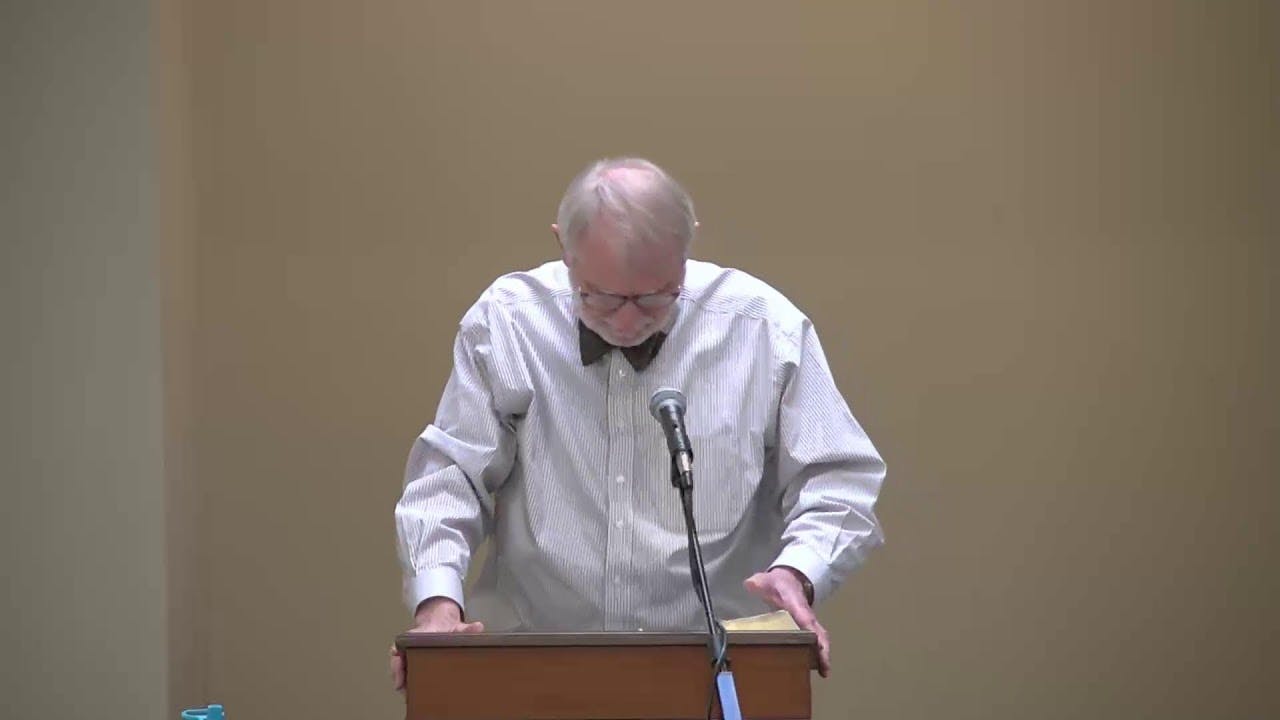Not Under Law But Under Grace - Romans 7:1-6
Kenny's message focuses on Romans 6:14 and 7:1-6, emphasizing the theme "Not under law, but under grace." He highlights the difference between justification (our standing in Christ) and sanctification (our living in Christ). Kenny illustrates the bondage of the law through the analogy of a restrictive marriage, where freedom only comes through the husband's death. However, since the law cannot die, the believer's death in Christ (Romans 6:3) is the only way to freedom. This death signifies not an end but a liberation from the law's dominion and a new beginning in Christ.
Kenny then introduces the concept of being "married to another," signifying our union with Christ. Just as a wife is bound to her husband, we are bound to Christ, who takes responsibility for our sanctification. This union signifies ultimate grace, offering freedom from the law's demands and enabling us to live in newness of spirit through the indwelling Holy Spirit.
Outline of Main Points:
The Bondage of the Law (Romans 7:1-3)
The law, like a ruthless husband, exerts unyielding control.
It condemns and offers no escape, highlighting human inability to fulfill its demands.
Freedom through Death in Christ (Romans 7:4)
Believers are made dead to the law through Christ's death.
This death liberates us from the law's unattainable standards.
Married to Another: Union with Christ
We are united with Christ, freed from the law and joined to Him.
This union is the essence of grace, providing everything needed for sanctification.
Cleared from the Law (Romans 7:5-6)
We are no longer bound by the law's demands.
Through the indwelling Spirit, we serve in newness of spirit, not in the oldness of the letter.
The Greatness of Grace
God's grace frees us from the law and unites us with Christ.
Through this union, we receive everything needed for justification and sanctification.
1 Know ye not, brethren, (for I speak to them that know the law,) how that the law hath dominion over a man as long as he liveth? 2 For the woman which hath an husband is bound by the law to her husband so long as he liveth; but if the husband be dead, she is loosed from the law of her husband. 3 So then if, while her husband liveth, she be married to another man, she shall be called an adulteress: but if her husband be dead, she is free from that law; so that she is no adulteress, though she be married to another man. 4 Wherefore, my brethren, ye also are become dead to the law by the body of Christ; that ye should be married to another, even to him who is raised from the dead, that we should bring forth fruit unto God. 5 For when we were in the flesh, the motions of sins, which were by the law, did work in our members to bring forth fruit unto death. 6 But now we are delivered from the law, that being dead wherein we were held; that we should serve in newness of spirit, and not in the oldness of the letter.
